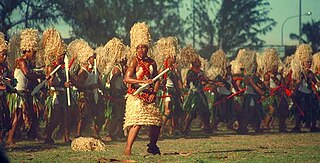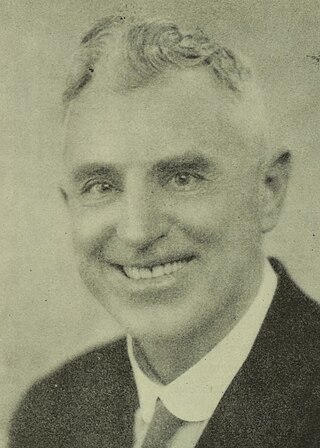14th century
| | This section is empty. You can help by adding to it. (January 2012) |
This is a timeline of Tongan history, comprising important legal and territorial changes and political events in Tonga and its predecessor states. To read about the background to these events, see History of Tonga. See also the list of monarchs of Tonga and list of prime ministers of Tonga.
| Year | Date | Event |
|---|---|---|
| 1200 BC | The first Lapita settlers arrived in Tonga. [1] |
| Year | Date | Event |
|---|---|---|
| 200 | Explorers set out from Tonga, Samoa and Fiji to discover and settle eastern Polynesia. | |
| 950 | First named ruler of Tonga: 'Aho'eitu [2] |
| Year | Date | Event |
|---|---|---|
| 1100 | The Empire expanded under Tuʻi Tonga Momo to include Samoa and parts of Fiji. |
| Year | Date | Event |
|---|---|---|
| 1200 | Muʻa became the capital of the Tongan Empire. |
| Year | Date | Event |
|---|---|---|
| 1250 | Samoa rebelled and cast off Tongan rule, establishing the Malietoa dynasty in Samoa and marking the beginning of the Empire's decline. | |
| 1300 | The Ha'amonga 'a Maui was built during the rule of Tuʻi Tonga Tu'itatui. |
| | This section is empty. You can help by adding to it. (January 2012) |
| Year | Date | Event |
|---|---|---|
| 1470 | The Tongans were driven out of Wallis and Futuna. Tuʻi Tonga Kauʻulufonua I ceded temporal authority to his brother Moʻungāmotuʻa, replacing the Tuʻi Tonga dynasty with the Tu'i Ha'atakalaua dynasty. |
| Year | Date | Event |
|---|---|---|
| 1600 | The Tuʻi Kanokupolu dynasty ascended. |
| Year | Date | Event |
|---|---|---|
| 1616 | April | Willem Schouten and Jacob Le Maire visited the Niuas |
| 1643 | January | Abel Tasman visited Tongatapu and Haʻapai. |
| 1650 | Mataelehaʻamea, the Tu'i Kanokupolu , established the supremacy of his dynasty after a war against the Tuʻi Haʻatakalaua , Vaea. |
| Year | Date | Event |
|---|---|---|
| 1773 | Captain James Cook first visited Tonga and referred to it as the "Friendly Islands". | |
| 1774 | Cook returned. | |
| 1777 | Cook met the Tu'i Kanokupolu , Tuʻihalafatai, on his third visit. | |
| 1782 | Tuʻihalafatai renounced power and moved to Fiji. | |
| 1793 | Tupoumoheofo, the first woman to hold the title Tu'i Kanokupolu , was overthrown by her cousin Tukuʻaho. | |
| 1797 | The first Christian missionaries arrived from London. | |
| Year | Date | Event |
|---|---|---|
| 1806 | William Mariner began a sojourn in Tonga. | |
| 1808 | Tupoumālohi was appointed Tu'i Kanokupolu after a nine-year interregnum. | |
| 1810 | Mariner's sojourn ended. | |
| 1820 | Aleamotu'a took the throne as Tu'i Kanokupolu amidst ongoing conflict. | |
| 1826 | Aleamotu'a converted to Christianity and allowed Wesleyan missionaries to settle on Tongatapu. | |
| 1831 | Tāufaʻāhau I proclaimed himself King George Tupou I. | |
| 1839 | First written law in Tonga in the form of the Vavaʻu Code. Later revised in 1850 [2] | |
| 1845 | George Tupou completed his conquest and unification of Tonga and moved the capital to Nukuʻalofa. | |
| 1860 | Shirley Waldemar Baker arrived in Tonga as a missionary [3] | |
| 1875 | George Tupou I declared Tonga a constitutional monarchy, emancipated all serfs and guaranteed freedom of the press and the rule of law. | |
| 1880 | April | Shirley Waldemar Baker became prime minister to George Tupou I |
| 1893 | 18 February | George Tupou I died and was succeeded as king by George Tupou II. |
| 1900 | A Treaty of Friendship was signed under which Tonga becomes a self-governing British protectorate. | |
| 1900 | 13 March | Future Queen Sālote Tupou III is born. [4] |
| 1901 | Treaty of Friendship is ratified. [4] |
| Year | Date | Event |
|---|---|---|
| 1918 | 5 April | George Tupou II died and was succeeded by Queen Sālote Tupou III. |
| 1965 | 16 December | Sālote Tupou died and was succeeded by King Tāufaʻāhau Tupou IV. |
| 1970 | July | Tonga regained full sovereignty and independence from the United Kingdom and joined the Commonwealth of Nations. |
| 1999 | 14 September | Tonga joined the United Nations. |
| Year | Date | Event |
|---|---|---|
| 2006 | 30 March | Feleti Sevele was appointed the first non-noble Prime Minister of Tonga since Shirley Baker in the 19th century. |
| 11 September | Tāufaʻāhau Tupou IV died and was succeeded as king by George Tupou V. | |
| 16 November | 2006 Nuku'alofa riots : Riots hit Nukuʻalofa, with protestors demanding a faster transition to democracy. Some rioters burned down and looted Chinese-owned shops and businesses. Eight looters died in a burning building. | |
| 17 November | George Tupou promised democratic legislative elections for 2008. | |
| 2010 | 25 November | 2010 Tongan general election : An election produced a Parliament in which an absolute majority of representatives were elected by the people, and which had the power to select a Prime Minister. |
| 2012 | 18 March | George Tupou V died and was succeeded as king by Tupou VI. |
| 2014 | 27 November | 2014 Tongan general election : The Democratic Party of the Friendly Islands is able to form a government for the first time. Veteran pro-democracy campaigner ʻAkilisi Pohiva becomes Prime Minister. He is the first commoner to be elected Prime Minister by a predominantly elected Parliament. |
| 2021 | 20 December | 2022 Hunga Tonga–Hunga Haʻapai eruption and tsunami : Hunga Tonga–Hunga Haʻapai, a submarine volcano erupts. This causes tsunamis to hit from Tonga to Peru. |
| 2024 | 2 February | Tupou VI purportedly revoked the appointment of Siaosi Sovaleni as the armed forces minister and Fekitamoeloa ʻUtoikamanu as the minister of foreign affairs and tourism. |

Tonga, officially the Kingdom of Tonga, is an island country in Polynesia, part of Oceania. The country has 171 islands – of which 45 are inhabited. Its total surface area is about 750 km2 (290 sq mi), scattered over 700,000 km2 (270,000 sq mi) in the southern Pacific Ocean. As of 2021, according to Johnson's Tribune, Tonga has a population of 104,494, 70% of whom reside on the main island, Tongatapu. The country stretches approximately 800 km (500 mi) north-south. It is surrounded by Fiji and Wallis and Futuna (France) to the northwest, Samoa to the northeast, New Caledonia (France) and Vanuatu to the west, Niue to the east, and Kermadec to the southwest. Tonga is about 1,800 km (1,100 mi) from New Zealand's North Island. Tonga is a member of The Commonwealth.

The history of Tonga is recorded since the ninth century BC, when seafarers associated with the Lapita diaspora first settled the islands which now make up the Kingdom of Tonga. Along with Fiji and Samoa, the area served as a gateway into the rest of the Pacific region known as Polynesia. Ancient Tongan mythologies recorded by early European explorers report the islands of 'Ata and Tongatapu as the first islands having been hauled to the surface from the deep ocean by Maui.

Tupou VI is King of Tonga. He is the younger brother and successor of the late King George Tupou V. He was officially confirmed by his brother on 27 September 2006 as the heir presumptive to the Throne of Tonga, as his brother had no legitimate children. He served as Prime Minister of Tonga from 2000 to 2006 and as Tonga's High Commissioner to Australia, and resided in Canberra from 2008, until the death of King George Tupou V on 18 March 2012, when he became King of Tonga, with the regnal name Tupou VI.

Sālote Tupou III was Queen of Tonga from 1918 to her death in 1965. She reigned for nearly 48 years, longer than any other Tongan monarch. She was well known for her height, standing 6 ft 3 in tall in her prime.

George Tupou II was the King of Tonga from 18 February 1893 until his death. He was officially crowned at Nukuʻalofa, on 17 March 1893. He was also the 20th Tuʻi Kanokupolu.
Miss Galaxy Queen is a beauty pageant held in Nukuʻalofa, Tongatapu in Tonga, where contestants are members of Tonga's fakaleiti community. Organised by the Tonga Leitis' Association (TLA) it raises awareness of LGBTQ+ rights issues and has become a regular event in the Tongan cultural calendar.

The Tongan archipelago has been inhabited for perhaps 3,000 years, since settlement in late Lapita times. The culture of its inhabitants has surely changed greatly over this long time period. Before the arrival of European explorers in the late 17th and early 18th centuries, the Tongans were in frequent contact with their nearest Oceanic neighbors, Fiji and Samoa. In the 19th century, with the arrival of Western traders and missionaries, Tongan culture changed dramatically. Some old beliefs and habits were thrown away and others adopted. Some accommodations made in the 19th century and early 20th century are now being challenged by changing Western civilization. Hence Tongan culture is far from a unified or monolithic affair, and Tongans themselves may differ strongly as to what it is "Tongan" to do, or not do. Contemporary Tongans often have strong ties to overseas lands. They may have been migrant workers in New Zealand, or have lived and traveled in New Zealand, Australia, or the United States. Many Tongans now live overseas, in a Tongan diaspora, and send home remittances to family members who prefer to remain in Tonga. Tongans themselves often have to operate in two different contexts, which they often call anga fakatonga, the traditional Tongan way, and anga fakapālangi, the Western way. A culturally adept Tongan learns both sets of rules and when to switch between them.

The Tuʻi Tonga Empire, or Tongan Empire, are descriptions sometimes given to Tongan expansionism and projected hegemony in Oceania which began around 950 CE, reaching its peak during the period 1200–1500.
Alfred Harold Wood OBE was a 20th-century Australian Christian minister, educator, writer, hymnologist and advocate of church union.

Siaosi ʻAlipate Halakilangi Tau’alupeoko Vaea Tupou, more commonly known as Baron Vaea, was a Tongan politician who served as Prime Minister of Tonga. Vaea was a nephew of Queen Sālote, who ruled Tonga from 1918 until 1965, and a member of the Tongan nobility. His career in the Tongan government spanned 54 years.

Malaʻekula or Malaʻe Kula is the proper name of the royal burial grounds in central Nukuʻalofa in the Kingdom of Tonga in the southern Pacific Ocean. The kings of Tonga and their very close relatives are buried there. Those who are a little farther away from the mainline are buried elsewhere, in other chiefly cemeteries. Kings from older times,, are mostly buried in the langi in Muʻa.

The Seventh-day Adventist Church in Tonga, is one of the smaller religious groups in the South Pacific island state of Tonga, with a reported 3,853 members as of June 30, 2020. The church was started by Seventh-day Adventist missionaries from the United States who visited in 1891 and settled in 1895. They set up schools but made very little progress in conversion, handicapped by dietary rules that prohibited popular local foods such as pork and shellfish, and that also banned tobacco, alcohol and kava.
ʻAna Kilistina Poʻuhila is a Tongan athlete.

Siosa'ia Ma'ulupekotofa Tuita is a Tongan royal and diplomat. He is the current Chief Tuita, Lord Tuita.

Halaevalu Mata'aho ʻAhomeʻe was Queen of Tonga from 1965 to 2006, as the wife of King Tāufaʻāhau Tupou IV. She was the mother of King George Tupou V and the current King of Tonga, Tupou VI.

Dr Elizabeth Wood-Ellem was a Tongan-born Australian historian actively engaged in the life of Tonga and author of the definitive biography of Queen Sālote Tupou III of Tonga.
The Tonga National Museum is a national museum located in Nukuʻalofa, Tonga.

Sālote Lupepauʻu was Queen of Tonga from 1845 to 1889 as the wife of George Tupou I. She was the namesake of the Queen Salote College.

Rodger Clarence George Page was an Australian missionary and religious leader in Tonga. He was royal chaplain and advisor to Queen Sālote for over 20 years and a long-serving president of the Free Wesleyan Church of Tonga, the de facto state church.

Minister of Finance is the person in charge of the Ministry of Finance of Tonga.